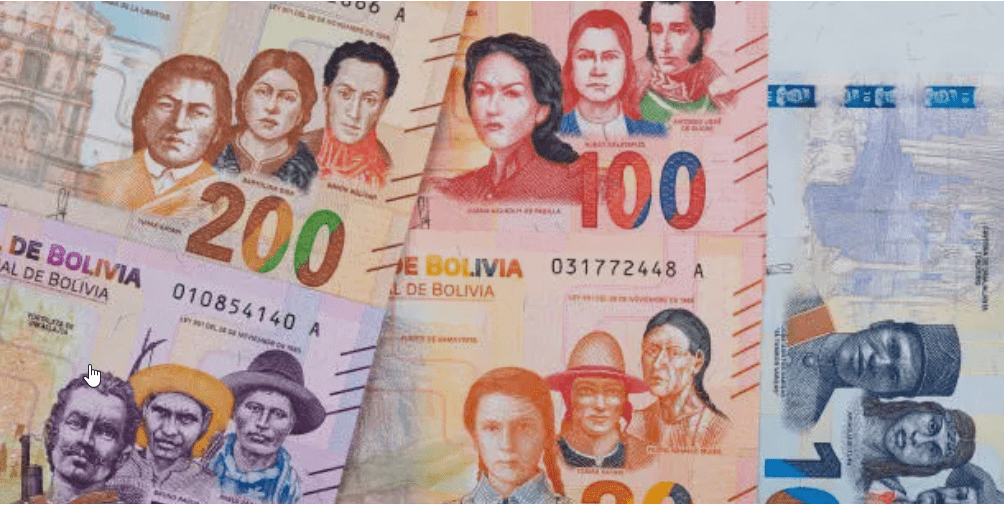Índice
This month we bring you our monthly picks as usual, but we start by presenting a new article by the Rosa Luxemburg Foundation’s Andean Regional Office. This special report takes an in depth look at the recently signed free trade agreement between Ecuador and China, which went almost unnoticed in the context of the impeachment process of the Ecuadorian president. What are the implications of a free trade agreement of this magnitude? Here we tell you.
The other four articles we recommend this month are from Ecuador, Venezuela, Colombia, and the treacherous Darien Gap between Colombia and Panama.
Happy reading!

CHALLENGES OF THE FREE TRADE AGREEMENT BETWEEN ECUADOR AND CHINA
In January 2023, after four rounds of negotiations, the Ecuadorian government finally confirmed that the small South American country will enter into a Free Trade Agreement (FTA) with China. It must now be analyzed by Ecuador’s Constitutional Court and be approved by the National Assembly – which won’t happen until after the snap elections in August. But if it passes, Ecuador will become the fourth country in the region to an FTA with China, after Costa Rica, Peru and Chile. What can we expect of the social and environmental impacts of this treaty, signed with “the largest factory in the world,” asks the author of the report by the Andean Region Office of the Rosa Luxemburg Foundation. To answer this question, the author takes a closer look at the other FTA’s China has signed with Latin America countries; the details of this current treaty with Ecuador, which has been characterized by inexplicable haste, secrecy, and lack of transparency; and presents the main socio-environmental concerns and challenges that this treaty with Ecuador would entail, like the deepening of extractivism, prioritization of legal security for international companies at the expense of the rights of communities. They end the 14-page report with several recommendations for civil society moving forward. Will the new trade deal help or hinder Ecuador?

- The Ecuador of Guillermo Lasso
- Q&A: Why the Darien Gap needs more attention than ever
- Rising tensions in Colombian government peace talks with the ELN
- Worker Empowerment Stalls in Venezuela as Left Unity Fractures
WORKER EMPOWERMENT STALLS IN VENEZUELA AS LEFT UNITY FRACTURES
Venezuela and its Bolivarian Revolution has met a number of obstacles over the years, including longstanding divisions among the left. The latest rift is between workers’ movements who have been protesting low wages and demanding that salaries be paid in US dollars to counter inflation, and the government of President Nicolas Maduro who has reprimanded them for “not understanding the effects of the blockade and the oligarchy’s economic war.” In this article, the author offers an explanation as to why worker empowerment languishes in Venezuela, even though it should be the bedrock of the socialist movement. The author attributes this division to two factors: the country’s economic crisis as well as shifting alliances and labor rights. She takes a closer look at each one, saying it’s important to understand the extent to which the current government supports workers. Since 2018, it has made some questionable moves, which include passing reforms that allows for major devaluation of the official exchange rate, eliminating price controls and import tariffs, and eliminating the right to strike. Venezuela clearly faces several challenges, namely an economic disaster caused by U.S. sanctions and depressed oil prices over the past ten years, which diminishes prospects for worker empowerment. Under these conditions, is it possible for the workers’ movements to feel empowered and what should be the role of the Venezuelan government in this fight?
W.T. Whitney, May 26, 2023
https://www.counterpunch.org/2023/05/26/worker-empowerment-stalls-in-venezuela-as-left-unity-fractures/
Q&A: WHY THE DARIEN GAP NEEDS MORE ATTENTION THAN EVER
The Darien Gap is a 100km stretch of rainforest separating Colombia and Panama. It has long been a treacherous crossing for migrants and asylum seekers trying to get up north, mainly to the United States. Since last year, the number of people attempting this crossing has nearly doubled, while experts expect that numbers will continue to rise as the US pandemic-era policy Title 42 – that prohibited migrants from entering the US irregularly or requesting asylum – has recently expired. This article features an interview with Caitlyn Yates, a PhD candidate of anthropology at the University of British Columbia in Canada who recently spent six months living in the Darién Gap, and explains why it’s important that regional authorities and the humanitarian aid sector pay more attention to it. It takes from 3 to 10 days to cross through this dangerous wilderness area, which is controlled on the Colombian side by the armed group Clan del Golfo. Migrants and refugees are often guided through the Darien by coyotes, or human traffickers, for astronomical fees, have little food or water on the way, and inadequate shoes, clothing or sleeping gear. The main populations making this crossing in past years have been Venezuelans, but Haitians and Ecuadorians also cross in high numbers, as well as people from India, Afghanistan, Cameroon and Somalia who fly into different parts of South America to continue their journey to the US border by foot. Can authorities really get a handle on this humanitarian emergency?
Daniela Mohor, May 15, 2023
https://www.thenewhumanitarian.org/interview/2023/05/15/qa-why-darien-gap-needs-more-attention-ever
RISING TENSIONS IN COLOMBIAN GOVERNMENT PEACE TALKS WITH THE ELN
Peace talks between the Colombian government and the National Liberation Army (ELN) guerrilla group reached a moment of tension this month, in their third round of negotiations being held in Cuba. On May 15, the ELN Central Command issued a statement rejecting comments that President Gustavo Petro made at the negotiating table, when the head of state questioned whether the ELN officials at the table really have the power to command, and claimed that most of the guerrilla group’s structures are engaged in illegal activities. The words of the President “delegitimizes the institutional architecture and the political sense of the Peace Talks with the ELN,” the ELN Central Command said in a statement. They also called President Petro’s words “disrespectful and stigmatizing,” saying the peace negotiations are “in crisis.” This statement was released only days after President Petro called on the ELN to agree to a ceasefire, first in particular regions of the country that have been overwhelmed by violence, and eventually to expand nationwide, in an attempt to ease suffering of local Afro-descendant, Indigenous and peasant communities affected by the ongoing violence in their territories. But it’s unclear how smoothly the talks will advance with the guerrilla group so deeply offended by the President’s comments. What awaits the future of these negotiations?
Peoples Dispatch, May 16, 2023
https://peoplesdispatch.org/2023/05/16/rising-tensions-in-colombian-government-peace-talks-with-the-eln/
THE ECUADOR OF GUILLERMO LASSO
On Wednesday, May 17, Ecuadorians woke up to a surprise announcement that President Guillermo Lasso dissolved the National Assembly, applying a never-used constitutional clause known as muerte cruzada, or “cross death.” The move triggered snap elections, which will be held in August, to elect a new president and national assembly to serve out the remainder of the political term that will end in 2025. President Lasso dissolved the national assembly the day after the impeachment hearing against him began, which he called baseless and causing “serious political crisis and international commotion.” But the author argues that the only thing causing commotion and political crisis in the country has been Lasso’s questionable governance. She takes a look at Lasso’s two-years in office, saying the economic, security, migration and prison crises have all augmented, while social movements organized a massive national strike in 2022 against his government, and he faced an impeachment trial for turning a blind eye to corruption and embezzlement in his administration. With the dissolution of the assembly, Lasso has effectively stopped the investigation and impeachment proceedings against him, and he has officially announced he will not run for president in the snap elections. But it is important to recall the track record of his brief time in office, before it gets lost to history.
Tanya Wadhwa, May 24, 2023
https://peoplesdispatch.org/2023/05/24/the-ecuador-of-guillermo-lasso/




